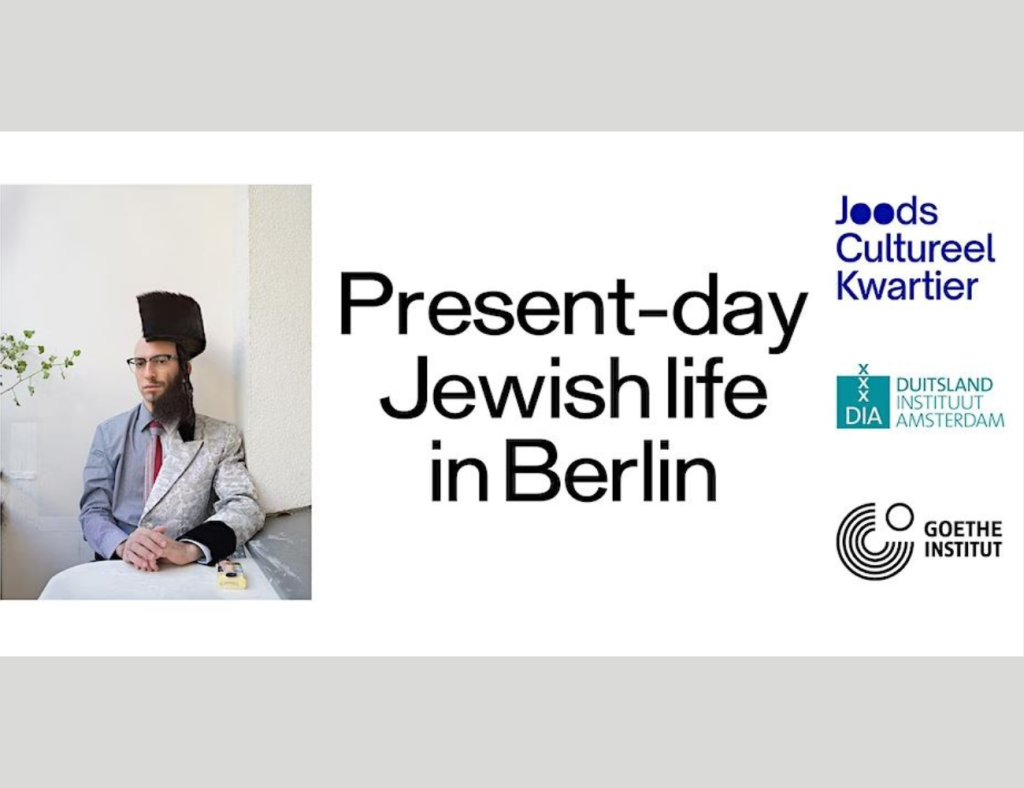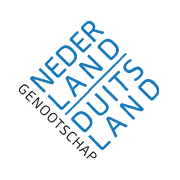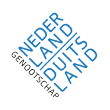
© Frédéric Brenner / Joods Cultureel Kwartier
Present-day Jewish life in Berlin:
Communities, Culture and the City
Berlijn kent een rijke Joodse geschiedenis. Een geschiedenis van vallen en opstaan, bloei en teloorgang, met als dieptepunt de Shoah. Interessant genoeg beleeft de Duitse hoofdstad juist in de afgelopen jaren een groei van de Joodse communities. Op dinsdag 22 februari spreekt journalist Sandra Rottenberg met de Berlijnse schrijver Mirna Funk, antropoloog Dani Kranz en de directeur van het Joods Museum in Berlijn, Hetty Berg over het hedendaagse Joods Berlijn.
Berlin has a rich Jewish history. A history of ups and downs, prosperity and decline, with the lowest point being the Shoah. Interestingly enough, the German capital is experiencing a growth of the Jewish communities, especially in recent years. Young Israelis in particular are moving to Berlin. What motivates them to come and live in the city where the elimination of Jewish life can be felt all around? And what’s actually meant when we’re talking about contemporary Jewish life? We will discuss these questions with Berlin writer Mirna Funk, social anthropologist Dani Kranz and the director of the Jewish Museum in Berlin, Hetty Berg. Panel host: Sandra Rottenberg.
Jewish life in Berlin is diverse. For some, religion plays a major role, for some it does not. There are local resident Berlin Jews but also Jews from the former Soviet Union, among others. This group came to the city as so-called “Kontingentflüchtlinge” after the fall of communism. Another group for which the German capital is particularly popular consists of young, mostly left-liberal Israelis. Why is that? And where do we see contemporary Jewish Berlin reflected in the city’s art and cultural scene?
In German media and public debate, being Jewish is often still reduced to the Shoah. As a result, most of German society know little about Jewish culture of today. Initiatives such as the talk show Freitagnacht Jews or the podcast 2021 Jüdisches Leben in Deutschland are trying to change that. But what else is needed to bring perspective to the present and future? And how is being Jewish being experienced differently in a neighbouring country like the Netherlands?
Joods leven in Berlijn is divers. Voor sommigen speelt religie een grote rol, voor sommigen niet. Oud-ingezeten Berlijnse Joden treffen op Joden uit o.a. de voormalige Sovjetunie, mensen die na de val van het communisme als zogenaamde ‘Kontingentvluchtlinge’ naar de stad kwamen. Een andere groep waar de Duitse hoofdstad bijzonder in trek is, bestaat uit jonge, meestal links-liberale Israëli’s. Waarom is dat zo?
En waar zien wij het hedendaagse Joods Berlijn terug in de kunst en cultuurscene van de stad? In Duitse media en het publieke debat wordt ‘Joodszijn’ vaak nog op de Shoah gereduceerd. Daardoor weet een groot deel van de Duitse samenleving vaak weinig over de Joodse cultuur van nu en blijft de omgang met elkaar krampachtig. Initiatieven zoals de talkshow Freitagnacht Jews en de podcast-reeks JLID2021 proberen hier verandering in te brengen. Maar wat moet er nog meer gebeuren om het perspectief op het heden en de toekomst te richten? Hoe wordt Joodszijn anders ervaren in een buurland als Nederland?
Hetty Berg is directeur van het Jüdisches Museum Berlin. Daarvoor was zij manager museale zaken en hoofdconservator van het Joods Cultureel Kwartier in Amsterdam.
Mirna Funk studeerde filosofie en geschiedenis aan de Humboldt-Universität in Berlijn. Ze is journaliste en schrijfster en woont in Berlijn en Tel Aviv.
Dani Kranz is een antroploog en DAAD Visiting Professor aan de Ben Gurion University in Israël. Daarnaast is zij lid van de Advisory Board of the Federal Commissioner for Jewish Life and Combating Anti-Semitism.
Sandra Rottenberg werkt als programmamaker, adviseur en producent voor diverse media waaronder televisie, radio en publieke debatten.
Dit evenement werd georganiseerd door het Joods Cultureel Kwartier i.s.m. het Duitsland Instituut Amsterdam en het Goethe-Institut Niederlande.
_________________________________________________________________________________________
Voertaal: Engels
Toegang: € 5,00 | studenten/met Goethe-Pass: gratis
Aanmelding: via Evenbrite

